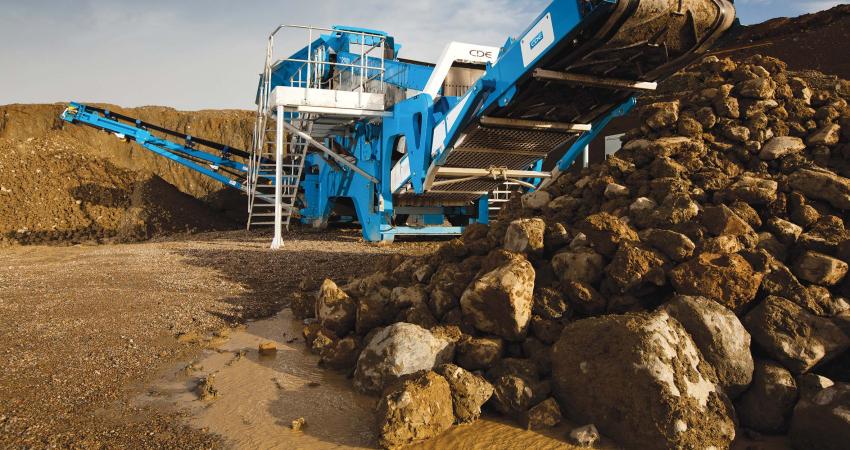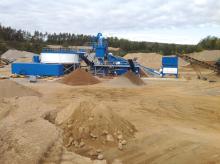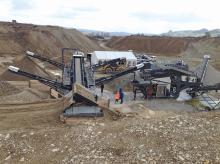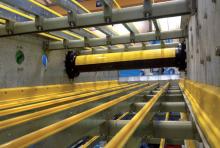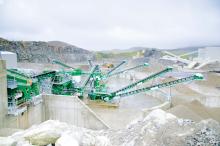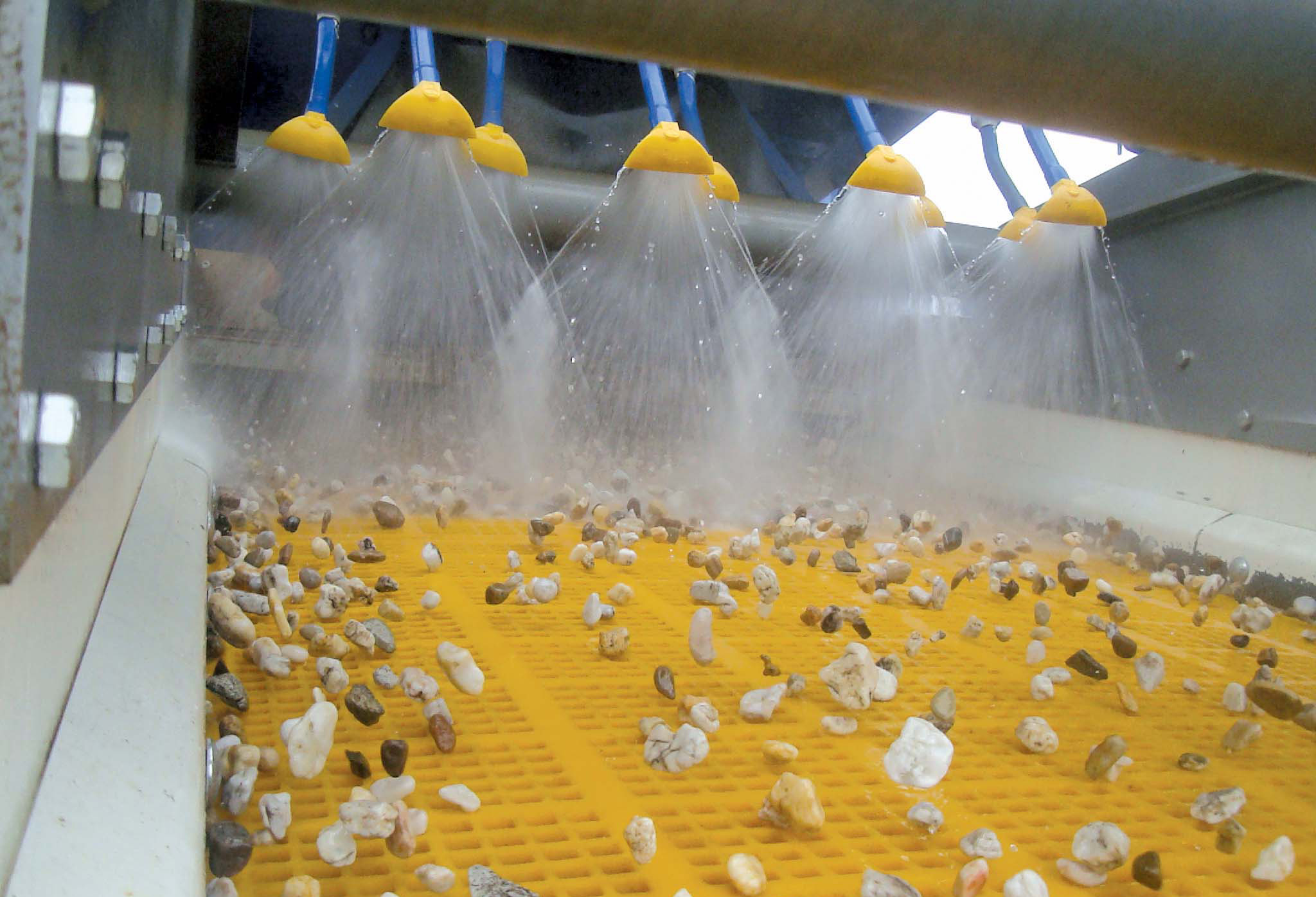
A turnkey sand and gravel washing plant is set to reduce environmental pollution for a German company. To unveil the plant, CDE Global and Josef Bohnen hosted an open day at Josef Bohnen’s main quarry in Swisttal, near Cologne.
Owner Josef Bohnen started the business with one
To meet the rising demand for washed sand and aggregates in recent years it was recognised that an innovative washing solution was needed.
“Water is not readily available as the quarry and a minimal space requirement was also necessary as there was no option for settling ponds,” says Matthias Haus, directorat Josef Bohnen.
The company identified that the required wet processing technology was not available in Germany and approached Northern Irish company,
The submission for the plant funding was centred around the aims of reducing water consumption, reducing CO2 emissions and washing with a small footprint.
The Federal Environment Ministry provides funds from the programme to promote demonstration projects within Germany that have large-scale reduction/avoidance potential and which can be transferred to similar systems operated by other users.
The assistance is increasingly focusing on integrated environmental protection measures, and the key focus is on climate mitigation measures, including renewable energy and energy efficiency projects. However, measures in the fields of water/wastewater, waste, air quality control and noise abatement are also eligible for funding.
The washing plant for Josef Bohnen matched the objectives of the programme and funding was awarded.
CDE Global commissioned the sand and gravel washing plant in April 2014. It consists of an AggMax 152 integrated scrubbing system, a M2500 washing plant and an AquaCycle A400 thickener, and produces five washed sand and aggregate products ready for sale at the rate of 140tonnes/hour. The typical breakdown of this is 65tonnes/hour of 0-2mm sand; 20tonnes/hour of 2-8mm sand; 12tonnes/hour of 0-63micron sludge with the remainder of the tonnage being fed to the AggMax for aggregate processing.
The company has control over the size and tonnage of each product produced, with features such as changeable mats on the EvoWash dewatering screen which can be easily adjusted to vary the size and quantity of sand coming off the screen.
Every aspect of the plant has been designed with conservation and efficiency in mind. For example, the feed hopper is located quite a distance away from the plant, but close to the raw feed, and this means the material does not have to be shovelled long distances from the source, significantly reducing operational and fuel costs.
Each deck of the P2-75 ProGrade model at the plant has a 5m x 1.5m surface area and FEA (Finite Element Analysis) verification, and is an integral part of the CDE range, featured on the R2500, M4500 and in this case the M2500. All FEA results are verified with onsite physical testing procedures. Physical tests have also been carried out within the dedicated ProGrade screen testing facility at CDE Headquarters in Cookstown, Northern Ireland.

